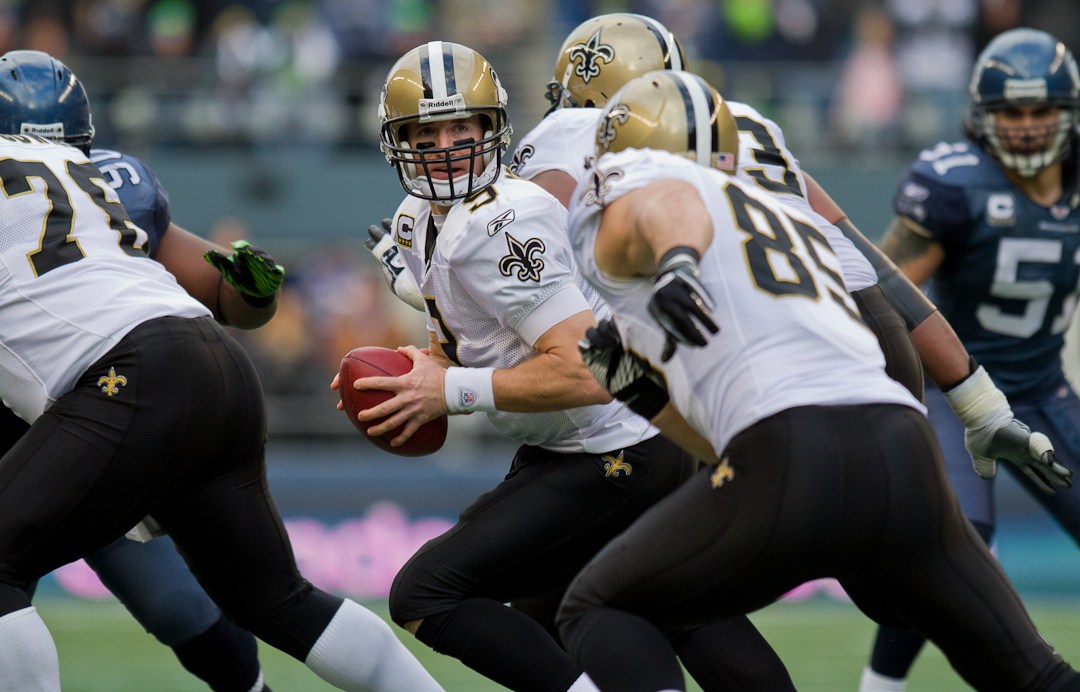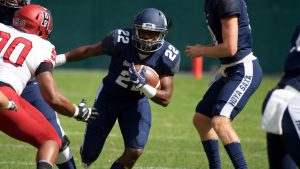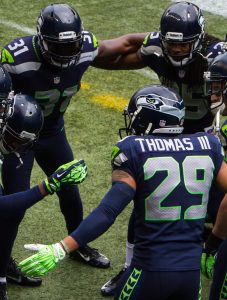Anyone who has watched a football game or sports network in the past month has seen Verizon Wireless’ commercial featuring New Orleans Saints backup quarterback Luke McCown. The commercial, narrated by McCown, draws a humorous parallel between Verizon’s unused backup cell-phone towers and the unused McCown. The clever pun was lost on many football fans three Thursdays ago in the Healey Family Student Center TV room, however, because none of them even knew who McCown was.
I, as the only Saints fan in the room, laughed at the joke—after all, the last regular season game New Orleans Saints quarterback Drew Brees missed was in 2009. The mere idea that McCown would get any airtime besides that of his commercial was nothing short of comical, right?
Wrong.
Two Sundays ago, in epically humorless fashion, Drew Brees joined an unusually long list of this season’s injured quarterbacks and subsequently caused a media and fan frenzy of mass hysteria. A fellow Saints fan’s Facebook status summed it up best: “Today I read the 3 words I have dreaded hearing for 9 years: ‘Drew Brees injured.’” NOLA.com exploded with injury reports, and sports networks across the board released inaccurate headlines detailing the catastrophe faster than you can say “jambalaya.”
As someone who wears her Brees jersey religiously, owns both a signed Brees helmet and poster and would probably not object if western religion decided that in Brees it had, in fact, found its Messiah, I can unabashedly say I too joined the frenzy. While being a Saints fan recently has been a tragedy in it of itself, this week I have experienced a new level of grieving.
And I’m not alone, either.
Dallas, Chicago and now Pittsburgh fans are all members of the mass lamentation of injured quarterbacks. So, in the spirit of potentially aiding my fellow grief-stricken NFL fans, I present to you the Four Stages of Grieving the Temporary Loss of an NFL Quarterback in the hopes that the recognition and following of these steps may ease the bereavement of football fans all over the country—or at least help them delude themselves into thinking positively just long enough for this pitiful season to end.
The first stage of grief is, of course, acceptance of your quarterback’s injury. I will admit—like many NFL fans the past few weeks, I was in denial too. But I found that acknowledging the facts— reading the injury report articles, responding to the texts and watching the ESPN film reels– eventually created enough repetition for my psyche to ultimately accept that my team’s Super Bowl MVP quarterback would not be suiting up last Sunday.
What I also began to accept, as the minutes of the first half began to dwindle, was the fact that quarterbacks don’t win (or lose) alone. Just like the 2013-2014 San Francisco 49ers found a way to win games with a reworking of offensive strategy and a killer defense, the Saints have decidedly more reasons to lose than just the absence of Brees—namely, their swiss-cheese defense and pitiful excuse for prospect scouting–but I guess I’ll save that analysis for another article for another week.
The second stage of grief is the crucial mourning period. Though you have tried your hardest to sit on your hands and hold back your tears while watching your team on Sunday afternoon, you eventually reach the breaking point and find yourself wondering whether or not Drew Brees would have been able to float that intercepted pass into the end zone just a few inches higher and avoiding the grasp of the opposing safety, or whether Tony Romo would have had the courage to run the ball for once as you sob uncontrollably into your Epi quesadilla.
Finally, as any chance of a win begins to slip through your fingers, you take a deep breath and being the slightly more optimistic process of stage three: moving on. You begin to reflect on the histories of backup quarterbacks who have turned into stars and wonder if any sort of miracle could turn Chicago Bears backup Jimmy Clausen into the next Aaron Rogers. After all, your starting quarterback isn’t half bad—Luke McCown went 31 for 38 with 310 yards passing, which is surprisingly comparable to Brees’ average 305 yards per game thus far this season. You marvel at McCown’s agility, command in the pocket and long, methodical drives that made even play-by-play announcer Chris Myers mistake him for “Brees” during a fake-out pass, and wonder if you have a chance to win a game after all. You also think back to the likes of Kaepernick and wonder if the lack of game film on your backup quarterback may take opposing NFL defenses by surprise.
Of course, there’s always the distinct possibility that your quarterback could return healthy and the rest of the season will be a sweet-smelling field of rainbows and daisies in which Ben Roethlisberger is dancing in a tu-tu and Brandin Cooks is hosting a barbeque.
But as the Sunday sun sets over Healy Hall, the mentality of Stage Four dawns on you: you begin to examine the facts. Your quarterback is still injured, your team has successfully added another loss to their already cringe-worthy season and your mom is incessantly berating your inbox with lists of potential quarterback draft picks for next season.
Or maybe that’s just me?






